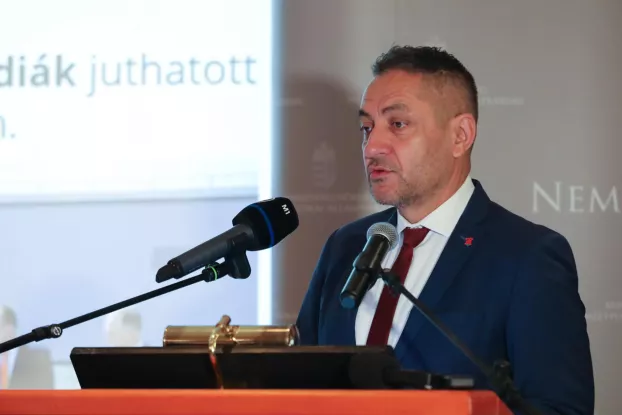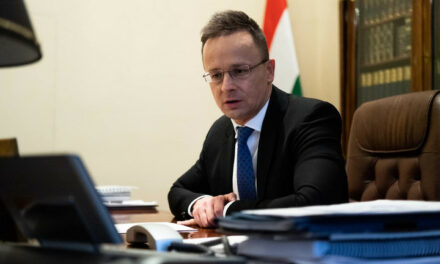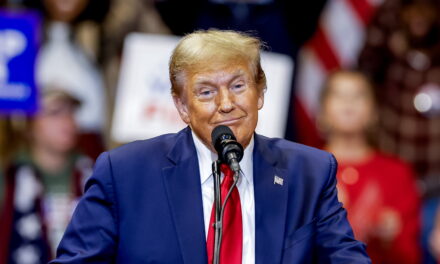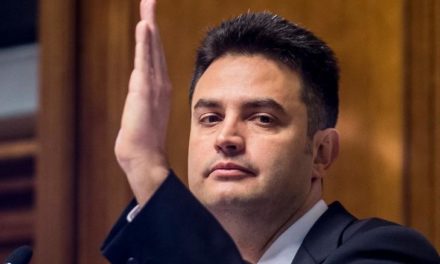We can show great strength if we unite and work hard to achieve our goals, stated the State Secretary for National Policy of the Prime Minister's Office in an interview with the Hungarian Nation. János Árpád Potápi evaluated the results of the Hungarian Diaspora Council and the Hungarian Standing Conference, as well as the situation of Hungarians living abroad in different regions. Attention is primarily focused on Transcarpathia, where survival is at stake. We take a look at the interview.
"It was good to see," began the state secretary, "that after three years we were able to hold the largest national political forums in person again, and with what great joy the representatives of the Hungarian diaspora came to the meeting of the Hungarian Diaspora Council." The representatives of Hungarian parties across the border participated in the Hungarian Standing Conference with similar enthusiasm. We also invited the Hungarian parliamentary parties to the latter, it is unfortunate that DK and Párbeszéd did not even respond to the request, and Momentum announced that they do not wish to send a representative to the meeting of all Hungarians.
The others who came spoke positively about the processes from a national political point of view and supported the government's efforts, everyone signed the closing statement.
In the past twelve years, national politics has had an arc, as a result of which the support system has become predictable and transparent for Hungarians across the border.
Many times, the most important thing was not how much money goes to the institution, historical churches and organizations, but that our compatriots abroad could see: the Hungarian government, Hungary constantly takes care of Hungarianness beyond the border. We think nationally, and we regularly extend the programs started at home beyond the border, the developments typically run in parallel. The results of this could be listed endlessly, for example, we built and renovated almost a thousand kindergartens abroad.
Year after year, we support five thousand Hungarian organizations abroad, with economic development programs we have reached forty thousand entrepreneurs. We were able to distribute twenty thousand baby packages among Hungarian children born across the border. This does not primarily have financial power, but thanks to this, the Hungarians there can see that not only they are very happy with a small newcomer, but also the motherland. There were also developments in diaspora communities, but on a much smaller scale, these supports are of a symbolic nature.
At the meetings, we all agreed that safety is the most important thing for us and that
the war conflict should not reach the areas where Hungarian people live. Subcarpathia is a part of Ukraine, but we are happy that the acts of war, apart from the single shelling in Volos, have avoided the county for the time being. It should be noted that the Hungarians of the diaspora and our compatriots living in the Carpathian Basin supported and continue to support the Transcarpathian Hungarian community in everything.
The school year has also started in Subcarpathia, and nearly eighty percent of the children have stayed in their place, that is, the families have persevered so far, the proportion is even higher for those over sixty years old. However, most of the men of conscription age are here in Hungary and support their families back home from here, which means a huge test, as well as the effects of the war. The Ukrainian state, which was functioning weakly before, cannot even fulfill what it has been able to do so far. There is a political crisis, and the atrocities against Hungarians have not stopped. What's more, by toppling the Turul statue, leading Ukrainian political circles intervened in the life of the Hungarian minority, which has never been so openly typical. In such a difficult situation, Hungarians must be asked to stay at home and persevere. The situation of Hungarians in the other regions is currently much better, but a lot of work needs to be done so that, as Prime Minister Viktor Orbán put it: Hungarians are the winners of the future. However, this requires an early ceasefire. For Hungary and Hungarians, there is no other alternative but peace.
Source and full article: Magyar Nemzet
Featured image: ma7.sk













